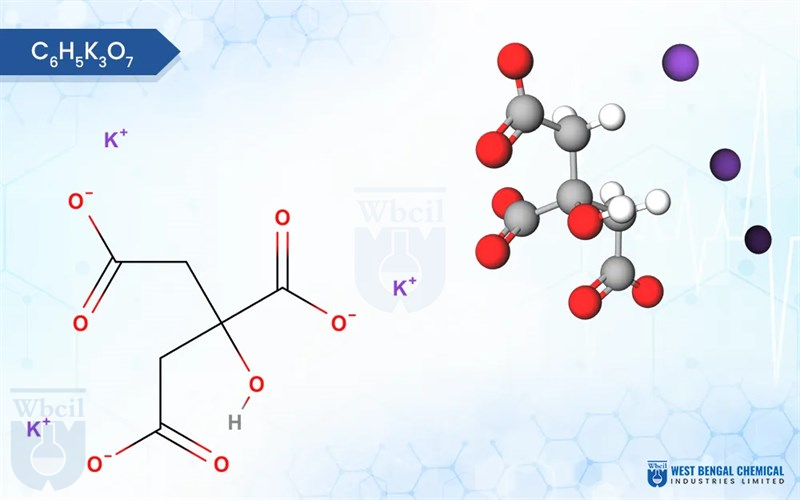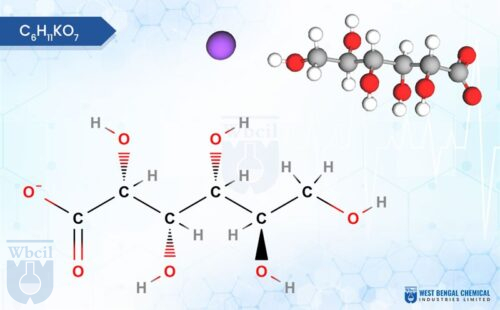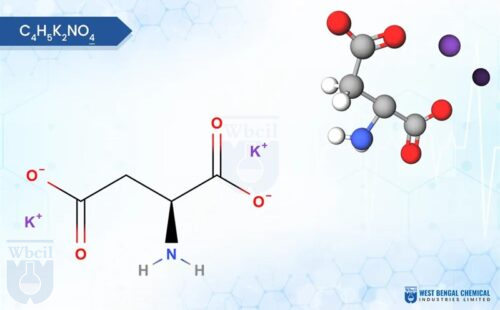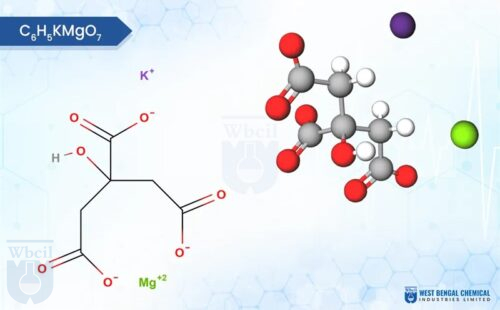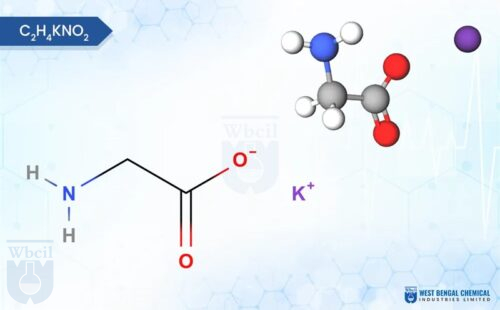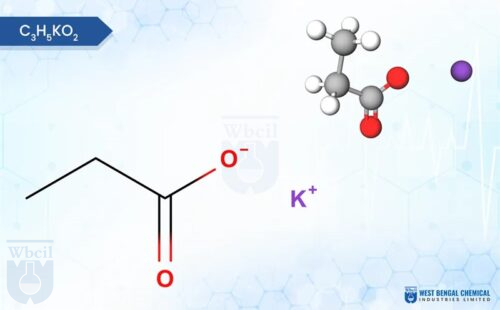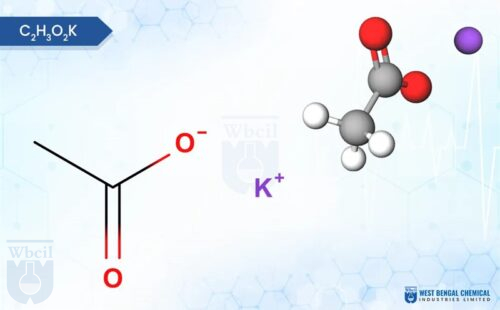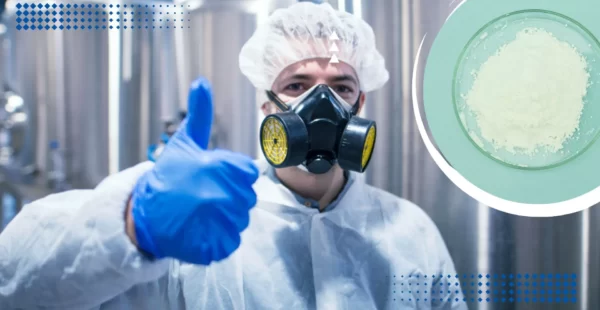-
Product Name:
Potassium Citrate
-
Molecular Formula:
C6H5K3O7
-
Molecular Weight:
306.39 g/mol
-
CAS No.:
866-84-2
-
HSN Code:
29181590
-
CID Code:
13344
-
Shelf Life:
3 years - 20°C powder
-
ATC Code (WHO)
A12BA02
-
DrugBank ID
DB09125
-
ChemSpider ID
12775
-
UNII No.
86R1NVR0HW
- USP
- IUPAC Names
- Synonyms
USP of Potassium Citrate
- Alkalinizes urine, preventing the formation of acidic crystals.
- Helps maintain healthy blood pressure levels.
- Supports muscle function by regulating nerve impulses and contractions.
- Aids in digestion by breaking down carbohydrates and preventing constipation.
- Contributes to bone health by playing a supporting role in maintaining strong bones.
- Regulates nerve impulses and can contribute to cognitive function.
- Well-absorbed by the body, making it a bioavailable form of potassium
IUPAC Names of Potassium Citrate
tripotassium;2-hydroxypropane-1,2,3-tricarboxylate
Synonyms of Potassium Citrate
- Potassium citrate
- TRIPOTASSIUM CITRATE
- 866-84-2
- Potassium citrate anhydrous

Description of Potassium Citrate
Potassium citrate, a crystalline salt with the chemical formula K3C6H5O7, is a white to off-white powder with a slight saline taste. It is odorless and exhibits a hygroscopic nature, readily absorbing moisture from the air. The crystals of potassium citrate are typically orthorhombic in shape and possess a high solubility in water. This compound is commonly used in various pharmaceutical and food applications due to its buffering, diuretic, and antacid properties. As a leading API manufacturer, WBCIL prioritizes strict CGMP and ISO quality control measures throughout the production process. The prolonged experience from 1962 ensures consistent potency, purity, and safety in every dose of WBCIL’s Potassium citrate.
Application of Potassium Citrate
Pharmaceutical Industry:
Preservative in Pharmaceuticals: In the pharmaceutical industry, potassium propionate can be used as a preservative in topical and oral formulations. Its antimicrobial properties make it effective in preventing microbial contamination, thereby extending the shelf life of pharmaceutical products. In liquid medications or topical treatments, it ensures the stability and safety of the formulation.
Food Industry:
- Preservation and Mold Inhibition: Potassium propionate is primarily used as an antimicrobial agent, especially against molds and yeasts, in various food products. It is commonly used in bakery goods such as bread, cakes, and rolls to prevent spoilage and extend shelf life. Its ability to inhibit the growth of fungi helps maintain the quality and safety of food products.
- GRAS Status and Flavor Preservation: As a food additive with GRAS (Generally Recognized as Safe) status, potassium propionate is approved for use in numerous foods, including dairy, processed meats, and sauces. Unlike some preservatives, it does not alter the flavor or sensory properties of the food, ensuring that the natural taste and texture are preserved.
- Compatibility with Other Preservatives: In the food processing industry, potassium propionate works synergistically with other preservatives like sodium benzoate and sorbic acid, which allows for broader-spectrum antimicrobial protection with lower concentrations of each preservative.
Bakery Industry:
- Mold Prevention in Baked Goods: One of the key uses of potassium propionate in the bakery sector is its role in preventing mold growth. Due to its effectiveness in high-moisture environments, it is added to bread, cakes, muffins, and other baked goods to prevent spoilage during storage and transportation, thereby increasing shelf life without compromising taste or texture.
- Dough Conditioning: The compound also contributes to the overall quality of baked products by helping with dough conditioning, ensuring smooth processing during baking.
Dairy and Processed Food Industry:
- Dairy Products: In dairy products such as processed cheese and cheese spreads, potassium propionate inhibits microbial growth, especially from molds and yeasts. This ensures a longer shelf life and maintains product quality during storage and distribution.
- Processed Meats: It is also used in processed meat products to prevent fungal contamination, particularly in products that undergo extended storage. Potassium propionate is effective in keeping products mold-free without compromising their flavor or texture.
Animal Feed Industry:
- Feed Preservation: Potassium propionate is incorporated into animal feed to inhibit the growth of mold, especially in high-moisture environments. By preventing the growth of harmful fungi, it helps maintain the nutritional value of feed, ensuring that animals receive healthy, uncontaminated food. This also reduces feed waste caused by spoilage.
- Improved Feed Storage: Its inclusion in animal feed products ensures that the feed remains safe for consumption over longer storage periods, which is especially important in regions with humid climates where mold can thrive.
Agriculture and Horticulture:
- Crop Storage: Potassium propionate can also be used in agriculture to protect harvested crops, such as grains and cereals, from mold contamination during storage. This helps maintain the quality and safety of crops, reducing post-harvest losses and ensuring a stable supply of high-quality produce.
- Fungicide Application: Its mold-inhibiting properties allow for its application in protecting stored agricultural goods, making it an eco-friendly and effective solution for crop preservation.


